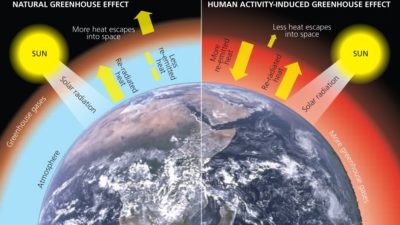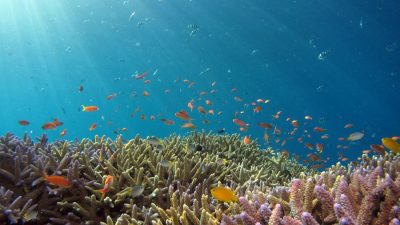Rising ocean temperatures threaten oxygen-producing microbe

Scientists warn that the world’s most abundant oxygen-producing organism might struggle to survive as climate change heats the oceans.
Prochlorococcus, a photosynthesising cyanobacterium, is an incredibly tiny bacterium that uses sunlight to make oxygen, just as plants do. It dominates 75 per cent of Earth’s surface waters and plays a vital role in both the ocean’s carbon cycle and global oxygen supply. It lies at the very base of the food web!
Getting into hot water
Sea surface temperatures are climbing to record highs due to global heating, and by 2100, most tropical and subtropical oceans are expected to be consistently hotter than 30°C. While Prochlorococcus does grow faster as temperatures rise, it only thrives up to 28°C, beyond that, its growth drops sharply. If these trends continue, scientists predict many ocean ecosystems depending on Prochlorococcus could face major disruption, with the knock-on effects reaching far beyond just oxygen loss.
“A 17-51% drop in Prochlorococcus production could mean a 3-10% reduction in total oceanic oxygen,” said François Ribalet, a University of Washington research associate professor of oceanography, who led the study. “But the bigger concern is the cascade effect throughout marine food webs. Prochlorococcus has close relationships with countless other microbes, and a decline in its numbers could trigger a domino effect, disrupting crucial cycles that keep our oceans alive.”
Ribalet hopes these findings will bring more attention to tropical oceans, which serve as natural laboratories for monitoring the effects of climate change and may provide early warning signals for ecological collapse.
Find out why animal agriculture lies at the heart of all environmental crises, including global heating, here.







